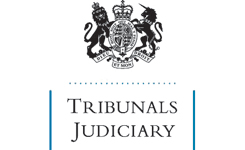|
Notes:
|
Reported as [2012] AACR 13
Safeguarding vulnerable groups – children’s barred list – standard of proof – fair hearing
The appellant was subject to investigations by the Independent Safeguarding Authority (ISA) in 2008 in relation to allegations of sexual abuse of boys in 1977–81 and 1985–89 and of possessing sexual images of boys. As none of the incidents had led to a conviction, he was considered for inclusion on the barred lists on a discretionary basis, subject to the consideration of representations, as provided by paragraph 3(1)–(3) of Schedule 3 to the Safeguarding Vulnerable Groups Act 2006 (the 2006 Act). The ISA case worker completed the initial assessment and information stages of investigation, as advised in ISA’s Guidance Notes for the Barring Decision Making Process and concluded that “relevant conduct” had occurred and that it would not be appropriate for the appellant to continue to work with children. Following detailed representations from the appellant’s solicitors, the case worker undertook the fourth and fifth stages of the decision-making process and concluded that the appellant should be barred from working with children by being placed on the Children’s Barred List. However, in accordance with the ISA’s Guidance Notes, she also referred the case to the ISA Board for a final decision. The Board reviewed both the evidence provided and the appellant’s representations and decided to recommend that he be included on the children’s barred list. The appellant appealed to the Upper Tribunal, arguing that (1) ISA had misapplied the burden of proof; (2) ISA had misapplied the proper statutory test under paragraph 3 of Schedule 3 to the 2006 Act; (3) ISA had erred in law by failing to offer the appellant an oral hearing, a failure which could not be cured by the right of appeal to the Upper Tribunal; and (4) ISA’s decision was perverse.
Held, dismissing the appeal, but making recommendations to ISA for improvements in procedure and practice, that:
1. it was clear from the minutes of the board’s meeting that it had not misapplied the burden of proof, though the decision letter had been extremely poorly drafted, wrongly suggesting that the burden of proof was on the appellant, and ISA should take steps to ensure that such a letter was never sent out again (paragraphs 37 to 40);
2. the appellant’s right of appeal was confined by section 4(2) of the 2006 Act to any point of law in ISA’s decision or any finding of fact which it had made and on which the decision was based. However, in this new hybrid form of appellate jurisdiction the Upper Tribunal was not limited by the constraints set by R (Iran) v Secretary of State for the Home Department [2005] EWCA Civ 982 as those comments were made in the context of a second appeal limited to points of law only, and so if the appellant could point to any finding of fact on which ISA’s decision was based as being plainly wrong, that might form the basis for a successful appeal (paragraphs 52 to 53);
3. ISA had applied the correct standard of proof, that is the balance of probabilities, and, in the light of all the factors, including the facts admitted by the appellant and the striking similarity between the two sets of allegations that could not be explained away on the basis of coincidence, collaboration, collusion or cross-contamination, had neither erred in law nor made any material mistakes of fact in concluding that the appellant had engaged in relevant conduct. While there were aspects of its consideration of the case that might have been improved, its conclusions as to the facts of both principal allegations by the complainants were justified on the evidence: Secretary of State for Children, Schools and Families v J [2009] EWHC 524 (Admin) applied (paragraphs 54 to 83);
4. there was then a separate issue as to the finding of appropriateness to bar. In this case there was no serious argument that, if the findings of fact were made out, ISA could reach any decision other than that the appellant was unsuitable to work with children, and so it was not necessary to explore the respective remit and expertise of ISA and that of the Upper Tribunal, bearing in mind the enigmatic language of section 4(3) of the 2006 Act, as discussed in R (on the application of Royal College of Nursing & Ors) v Secretary of State for the Home Department & Anor [2010] EWHC 2761 (Admin) (paragraphs 18 to 19 and 84);
5. while there was no doubt that, as a matter of principle, Article 6(1) of the European Convention on Human Rights (right to a fair hearing) applied to proceedings before ISA in that those proceedings involved the determination of the appellant’s civil rights and obligations, the appellant had no absolute right to an oral hearing before ISA reached its decision nor on the facts of this case did ISA err in law by failing to offer him such a hearing: Royal College of Nursing and R (on the application of G) v The Governors of X School [2011] UKSC 30 considered. However ISA should consider and ideally set out in a publicly available document the circumstances in which it would be appropriate to hold an oral hearing (paragraphs 95 to 108, 116);
6. given that the other grounds of appeal were rejected by the Upper Tribunal, the perversity challenge inevitably fell away (paragraphs 111 and 112).
|
